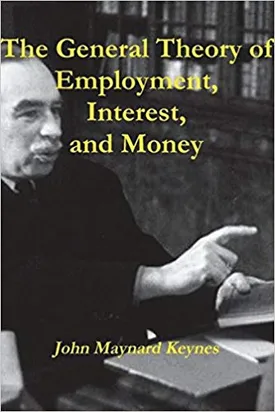John Maynard Keynes
John Maynard Keynes, who lived from 1883 to 1946 during the economic upheaval of the Great Depression and World War II, is considered one of the foremost economic minds of all time. His theories about the management of economies during times of strife have been studied, debated, and incorporated into public policy by governments, political figures, and economists worldwide.
Keynes was born into a prominent English family and was educated at King's College in Cambridge. His early focus was on philosophy and classic literature. He soon turned his attention to mathematics and economics and wrote his dissertation on the probability of the occurrence of a particular event. His work caught the eye of members of the Bloomsbury Group, an intellectual circle of writers and painters in London who influenced Keynes and his ideas.
Keynes's most famous book, The General Theory of Employment, Interest, and Money was written during the Great Depression and published in 1936. In it he outlined his theories about how governments should manage economies when faced with severe economic difficulties. The overarching idea of the book is that governments should intervene in troubled economies by engaging in deficit spending. This means spending money even when it exceeds the amount that can be raised through taxation.
Keynes proposed that such intervention should be concentrated in areas where the government can most directly alleviate suffering and stimulate the economy, such as the construction of public works and the subsidizing of businesses. He further argued that governments have an obligation to provide relief in times of crisis, and that failure to do so could lead to unrest and social instability.
Keynes argued that his theories were not just applicable in times of economic crisis, but could be used to manage an economy even during periods of relative prosperity. He argued that governments should maintain and stabilize the purchasing power of money and use taxation and wage interventions to ensure fair exchange of goods and services.
In addition to his economic theories, Keynes wrote extensively on a range of topics relating to society and civilization. He wrote books on the nature of trust and confidence, the role of banks in society, the consequences of war, and the root causes of poverty. He argued that certain kinds of causes need to be taken into account when managing economies, such as accounting for inflation, deflation, and the uncertainty of future market conditions. He also argued for government intervention to prevent destructive market fluctuations.
To this day, Keynes is widely regarded as the father of modern economics, having helped to shape the way government, politics, and economics intersect in areas all over the world. His theories have been used to manage economies from small countries to large, and his ideas remain as relevant today as they were when he wrote them in 1936.


